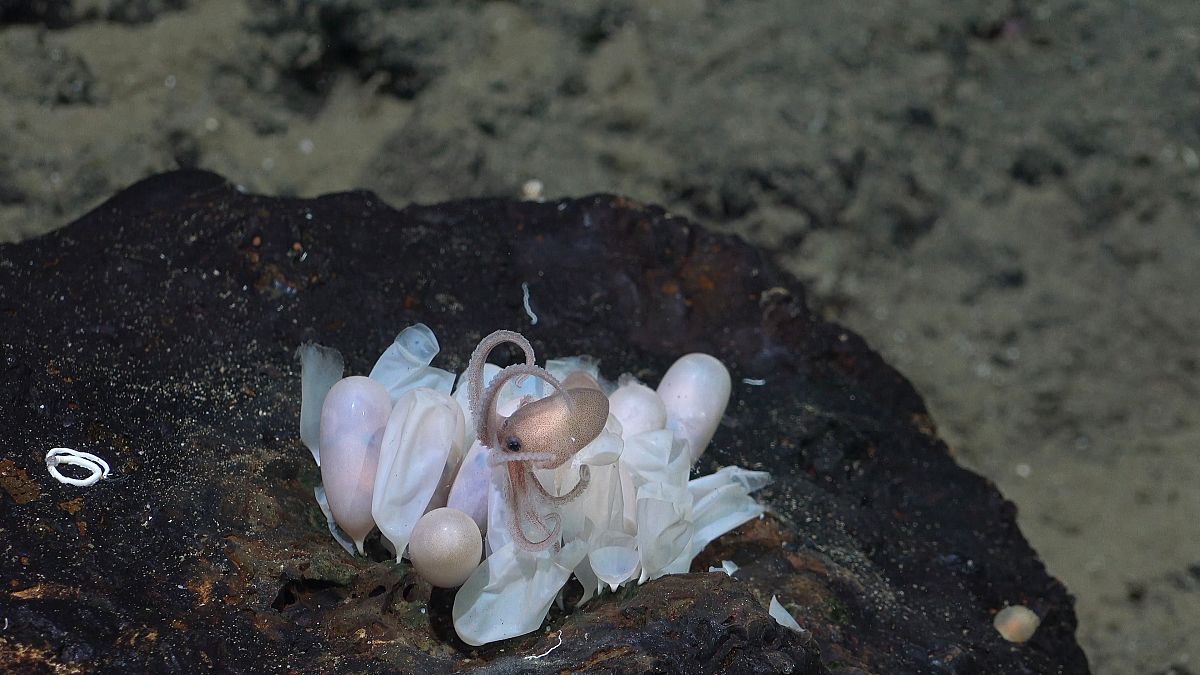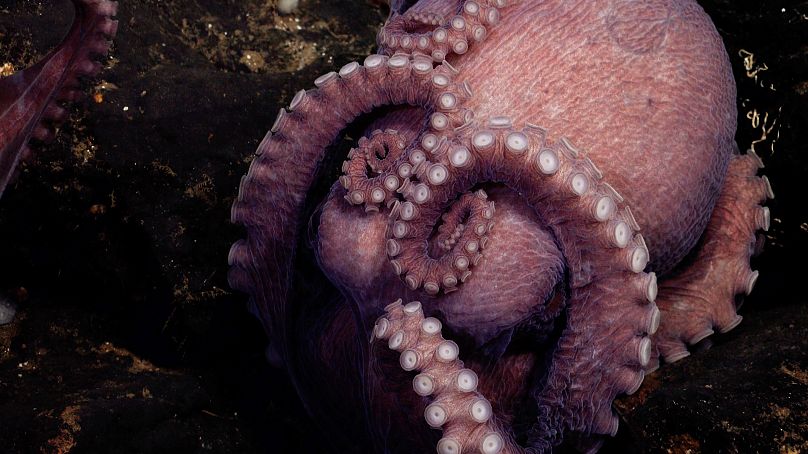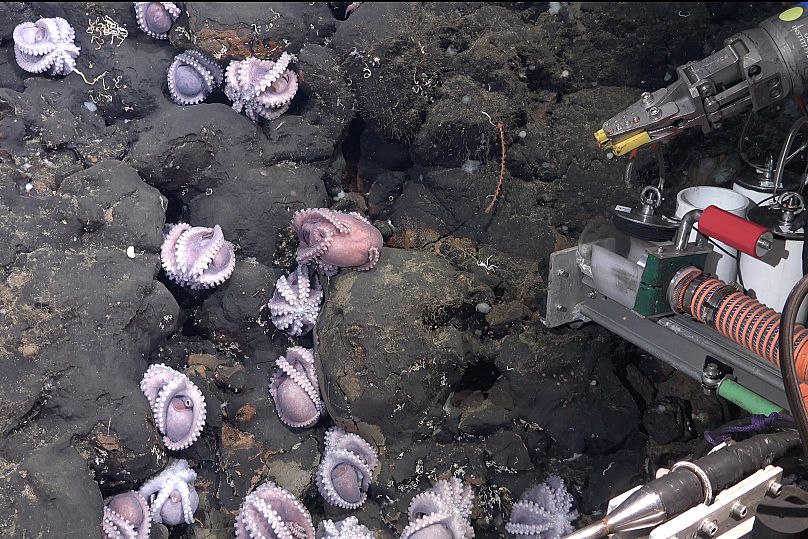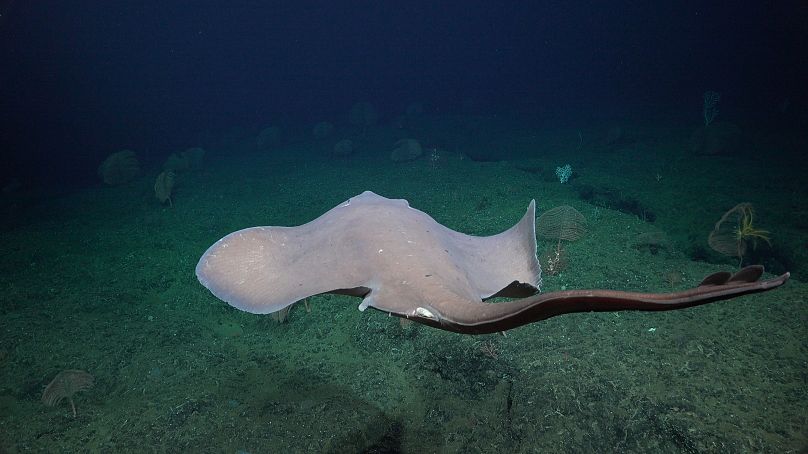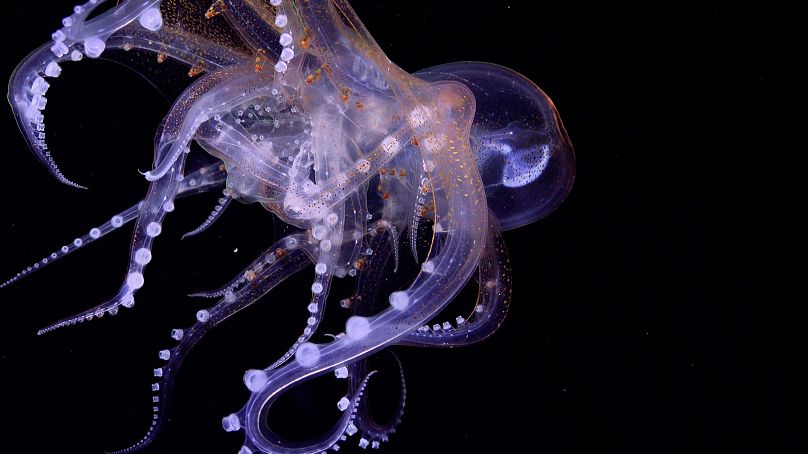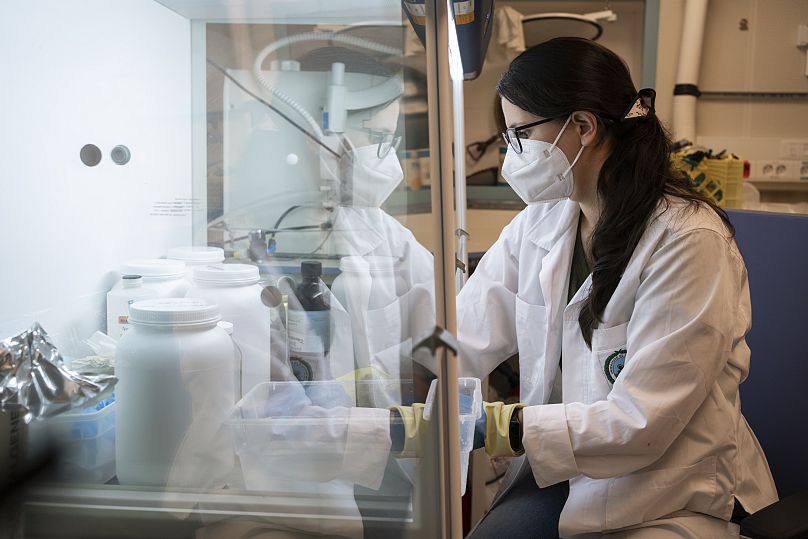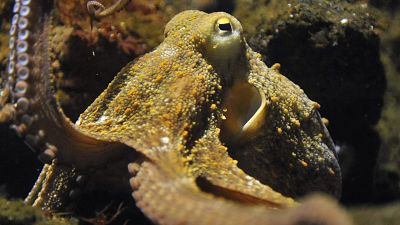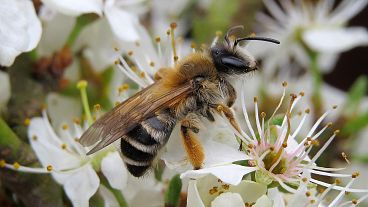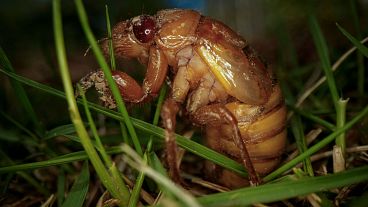A research expedition has been exploring hydrothermal springs teeming with life off Costa Rica's Pacific coast.
Scientists have discovered at least four new octopus species in a roughly 260-kilometre square area off the coast of Costa Rica.
During two expeditions in 2023 onboard the Schmidt Ocean Institute’s Falkor (too) research vessel, two octopus nurseries were discovered around hydrothermal springs off of the country’s Pacific coast.
They found three hydrothermal springs in the area roughly 10 to 30 nautical miles (18.5km to 55.5km) apart.
Each has its own unique temperatures and chemistries which indicate the different ways in which they may have formed.
One of the new species - dubbed the Dorado Octopus for the unofficial name of the outcrop it was found on - was discovered at one of these hydrothermal springs. It was observed brooding its eggs in the warm waters.
“Through hard work, our team discovered new hydrothermal springs offshore [of] Costa Rica and confirmed that they host nurseries of deep-sea octopus and unique biodiversity,” says Dr Beth Orcutt from the Bigelow Laboratory for Ocean Sciences who co-led the two expeditions.
The other three species were found away from the hydrothermal springs in the deep sea nearby. And a deep-sea skate nursery - nicknamed the Skate Park - was also found in Costa Rican waters.
How will this research help protect Costa Rica’s deep seas?
The more than 160 deep-sea animal specimens collected during the December expedition will be sent to the Museum of Zoology at the University of Costa Rica. They will join 150 specimens collected by the team last June.
It is one of the first times that all of the biological specimens from a deep sea expedition will be stored in the country where they came from rather than being sent to the US or Europe. The Schmidt Ocean Insititute says this allows local scientists and students to easily access the samples, helping inform strategies for managing the region's deep seas.
“The impact of the R/V Falkor (too) expeditions on understanding the deep Pacific waters of Costa Rica will last into the future and hopefully create awareness that evolves into policies to protect the deep sea of the country,” says Dr Jorge Cortés of the University of Costa Rica, the expeditions’ other co-lead.
“I hope that the expedition serves as an inspiration for new generations. We need more international collaborations to advance knowledge of our deep-sea heritage.”
In 2024, the Falkor (too) will be operating off the coast of Peru and Chile, welcoming more scientists from South America on board.
Schmidt Ocean Institute’s Executive Director, Dr. Jyotika Virmani says they hope to support the scientific community wherever the research vessel goes.
